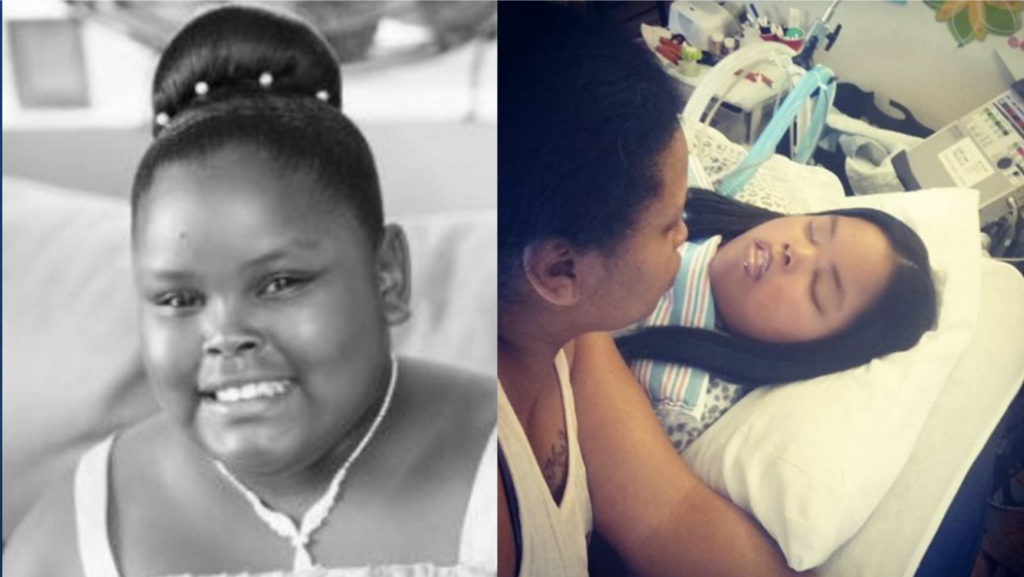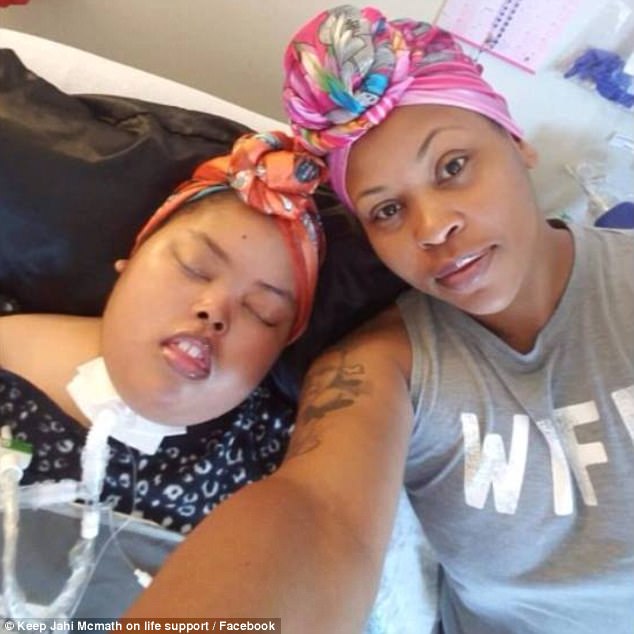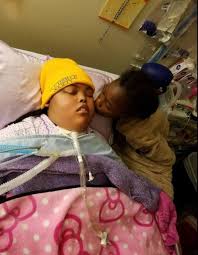 Jahi McMath, an Oakland teenager whose brain-death following a routine tonsil surgery in 2013 created national headlines, died on June 22, according to the family's attorney.
Jahi McMath, an Oakland teenager whose brain-death following a routine tonsil surgery in 2013 created national headlines, died on June 22, according to the family's attorney.
Over the years, the family has shown videos and released statements that show Jahi was "still alive" despite reports from some doctors.
According to court documents, the ordeal all started when McMath was admitted to Children's Hospital Oakland on December 9, 2013, for an adenotonsillectomy and other related routine procedures. It was hoped that these procedures would provide improved airflow during her sleep at night. The hospital described these procedures as complicated. The family described the surgery as a routine tonsillectomy in media reports.
After the surgeries were performed, McMath was conscious and according to her mother, Latasha "Nailah" Winkfield, asked for a Popsicle while in the recovery room. On December 9, 2013, McMath suffered massive blood loss and consequent cardiac arrest. According to McMath's doctors at Children's Hospital Oakland, the loss of blood circulation caused whole brain death. On December 12, 2013, her doctors declared her brain-dead. Her family was informed that she was legally dead, and that as a result, life support systems would be discontinued. Her family refused to accept the medical declaration of death by neurological criteria, said that McMath was not dead, and initiated legal proceedings in an effort to require the hospital to continue treatment.
Nearly five years later, "Jahi died as the result of complications associated with liver failure," the statement from attorney Christopher Dolan said.

"A preliminary Abstract of Death (Death Certificate) was completed by the hospital physician treating Jahi listing her cause of death as bleeding as a result of hepatic (liver) failure," Dolan said in the statement announcing McMath's death. He goes on to say the death certificate, "notes that Jahi had been suffering from an anoxic brain injury for 4 years. Anoxic brain injury occurs when the brain is deprived of oxygen. Jahi suffered an anoxic brain injury as the result of severe blood loss after surgery at Children's Hospital Oakland in December of 2013 when medical staff failed to treat Jahi or summon a doctor after she had undergone surgery on her tonsils, adenoids and soft palette to address a condition known as apnea."

She died at home surrounded by her mother, Nailah Winkfield, stepfather Marvin Winkfield and sister, according to the statement.
Winkfield said she is "devastated by the loss of her daughter who had showed tremendous strength and courage." Adding that she "forced the world to rethink the issue of brain death," referring to...
... the sweeping national debate about what legally and ethically constitutes death surrounding her daughter's case.
Since then, the case has prompted some commentators to discuss the futility of life support in such cases and even refer to it as "death support". Other questions that have been raised include how California law treats brain death and whether McMath's case could change existing laws and practices. McMath's attorney, Christopher Dolan said, "There would have been no legal battle if Jahi had had her tonsils out in New Jersey”, referring to a New Jersey state law allowing religious objection to a declaration of death on the basis of neurological criteria.
Public confusion surrounding differences between brain death and cardiac death raised by this case led some doctors to voice concern about how the case could affect live organ recovery from brain dead patients. The impact of this case on medical negligence awards in California has also been discussed, as there is no compensation limit if the patient is alive, while compensation is capped at $250,000 if the patient has died.
Winkfield said she is thankful for the years she had with her daughter and although her daughter could not talk to her, "my daughter knew I was there and that I loved her, I knew she was there and that she loved me too."









